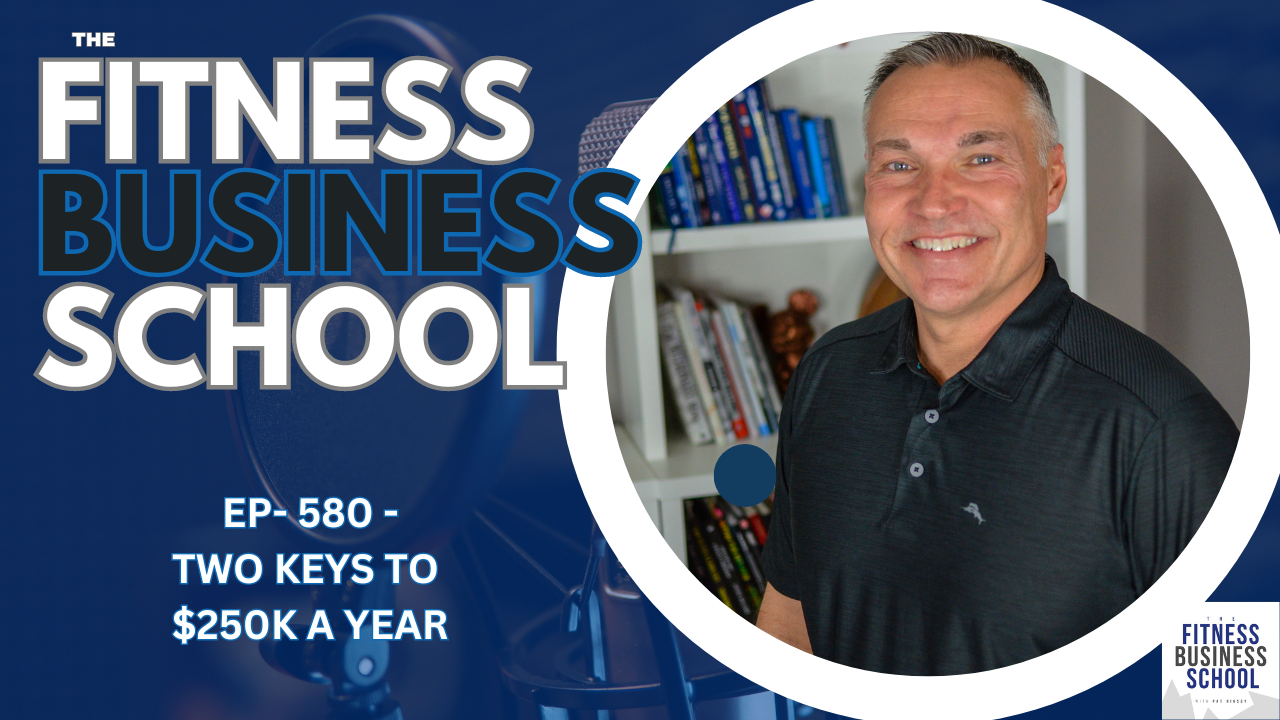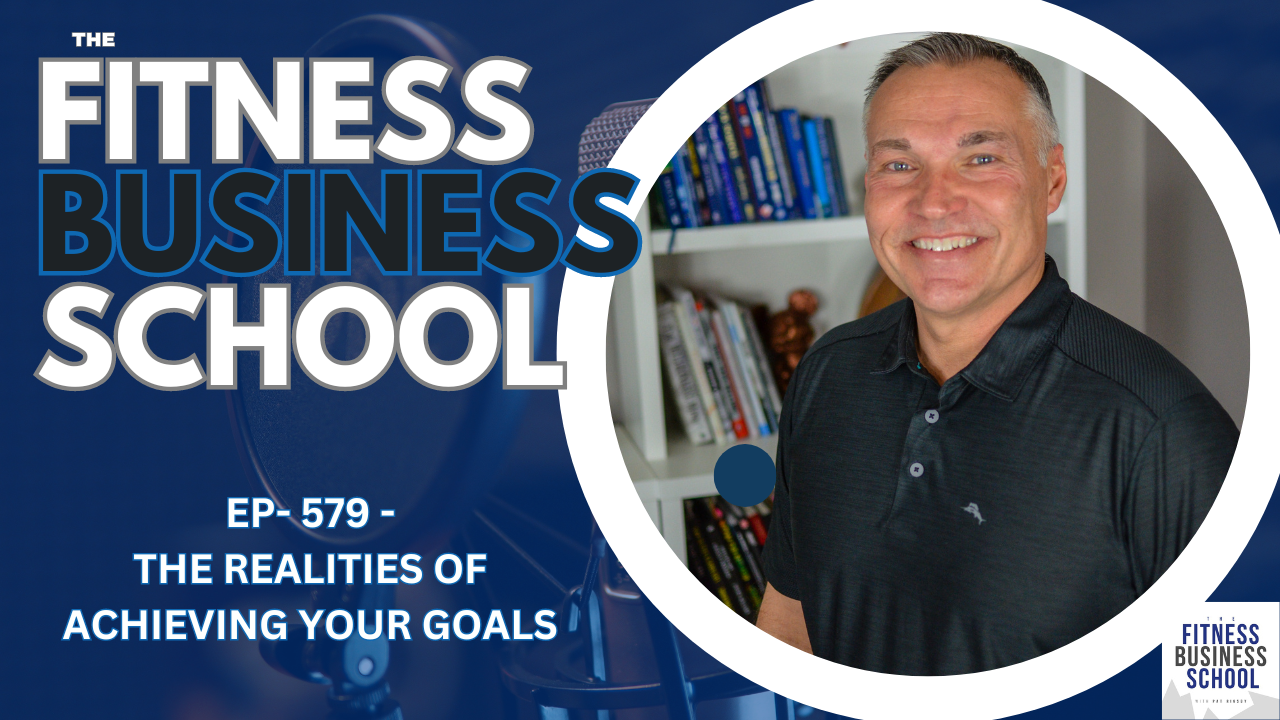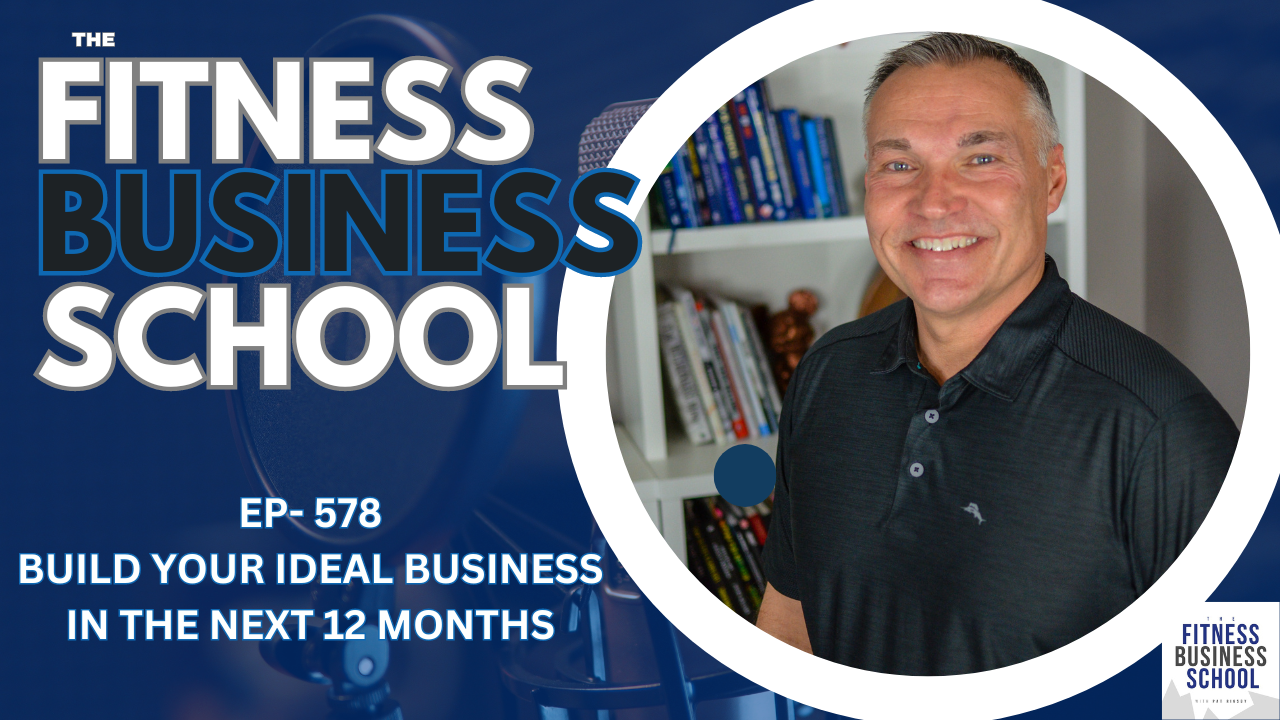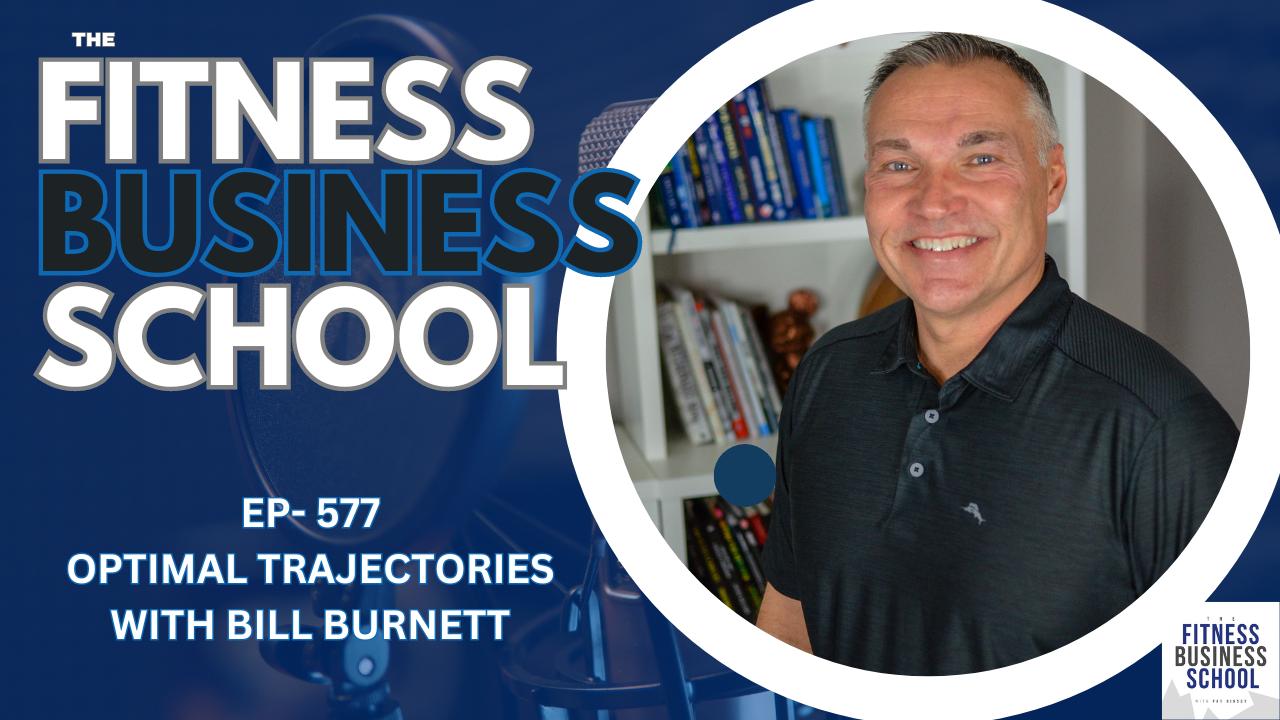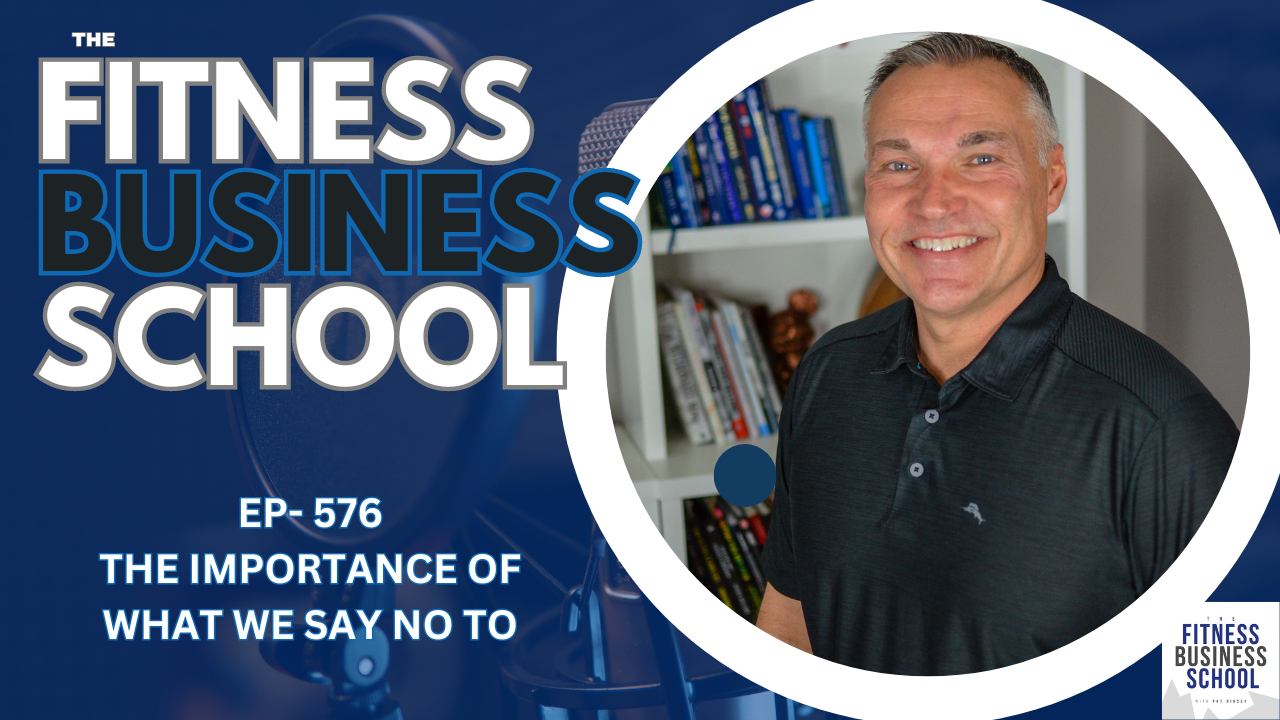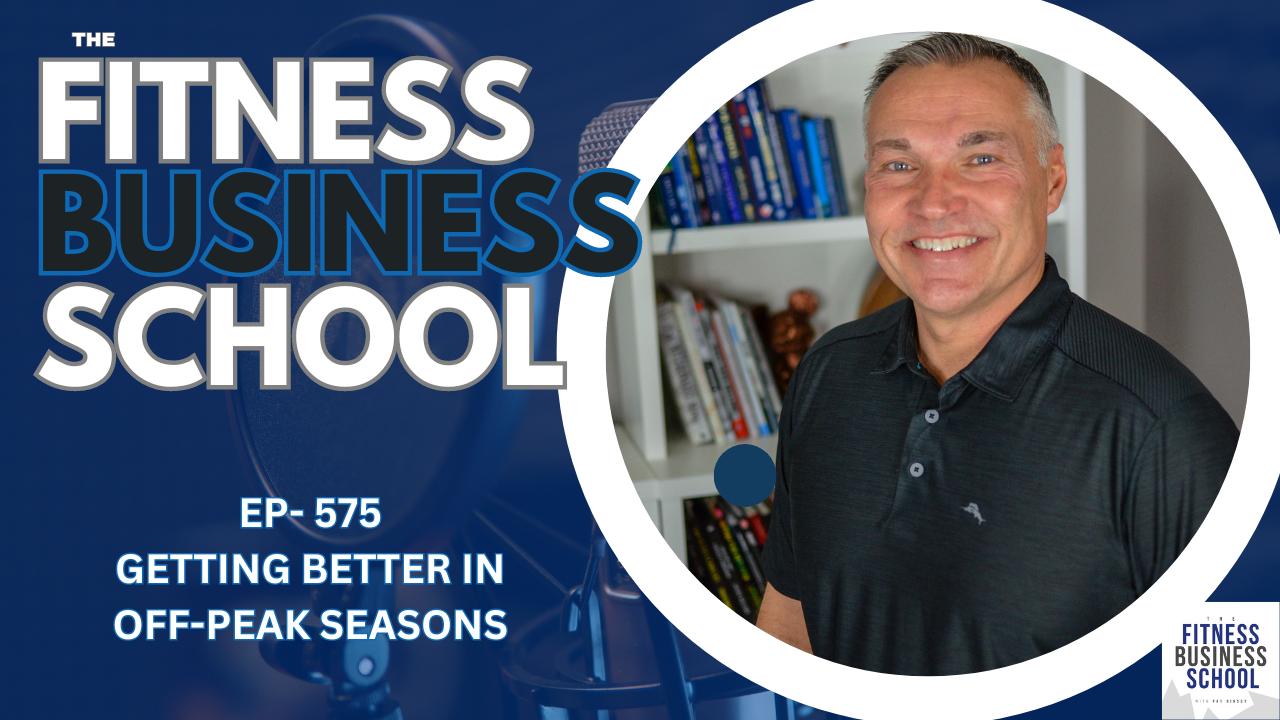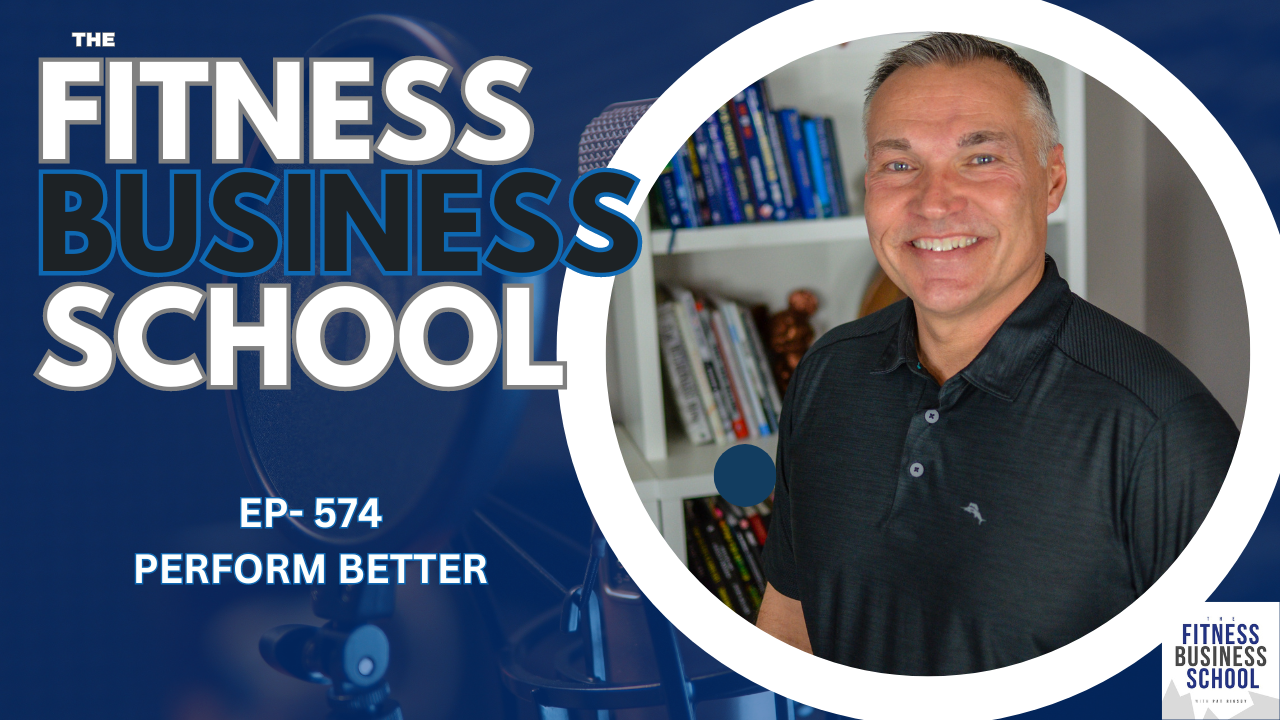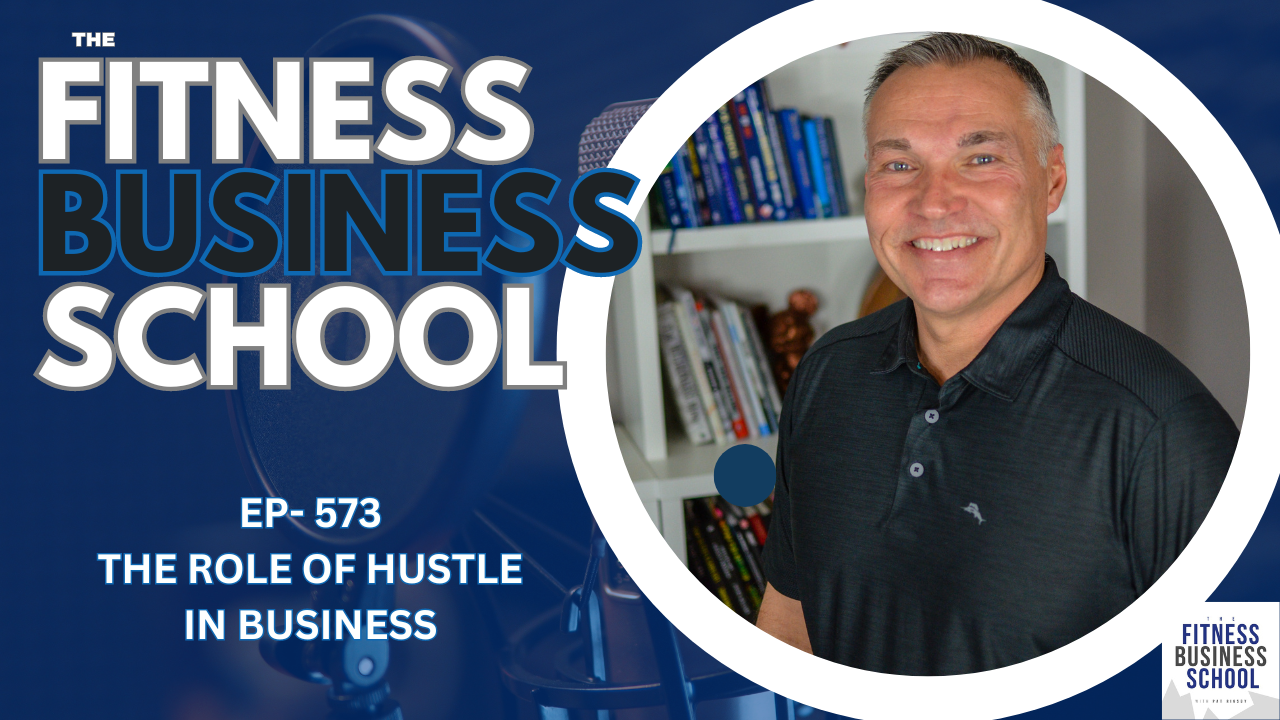Show Notes
00:00 Introduction to the Series
00:45 Wearing Multiple Hats as a Startup
01:30 Finding Your Best Role
03:35 Delegation and Elevation
05:21 Building a Great Team
06:58 Onboarding and Supporting Your Team
09:05 Conclusion and Next Steps
09:40 Special Offer and Diagnostic
Full Transcript
Hey, Pat Rigsby here again, and we’re in the third part in this four part series about creating your ideal business. So let’s get to it
Welcome to the Fitness Business School podcast, the show for fitness business owners who
want to grow their income, increase their impact and improve their lifestyle. Be sure to listen to the end
of this episode because we have a brand new special offer exclusive for listeners. So stay tuned.
So if you want to build your ideal business and the people that work with us in coaching programs that’s what they want to accomplish.
They want to build a business that they love owning, then you must play your best role. And as a startup business owner, we all go through that period where we’re wearing every possible hat, right? We’re the service provider, we’re the program designer, we’re the salesperson, the marketer. The administrative assistant, maybe even the janitor.
You could possibly even be the equipment repair person, right? I know that for Holly and my honeymoon, we were painting the gym walls and staining the floor the morning after we got married, I fully understand and appreciate that. And you’re going to fill a lot of roles in this early stage of business and that’s fine, but so many business owners fall into the trap of still behaving like a startup three, five, even 10 years in ownership.
And that is not playing your best role. Your best role is the role where you can have the most impact, where you can be the most fulfilled by delivering the work that you’re going to do And where you can earn the most income and derive the most fulfillment from the value you’re delivering. So our objective when we talk about playing our best role is to move from that position where we feel like we’re almost held hostage by our business to being in a spot where we’re doing our best, most impactful and fulfilling work.
We must move away from a role where we’re having to do everything and we’re essentially on call. There must be a shift. From always feeling overwhelmed by the number of things we have on our plate in any given day to a role where we’re spending at least 80 percent of our time doing those things that we’re meant to do.
The things we’re best at and the things that require our unique talents and skills. In some cases, these are things that in our business we may be either the only person to do or clearly the best person to do. I can tell you in my business, my best role is writing. Connecting with the clients and people that I want to serve, right?
The, I think email or even podcast community doing coaching calls or hosting meetings or zooms for my clients, connecting, For, to discuss people becoming clients, coaching clients, consulting clients, and then being the person who navigates the strategy and the ideation for the business. So if I’m the one who’s testing and formatting emails being sent out, if I’m the one doing web design, or if I’m the one handling how we’re going to book a hotel room for a mastermind meeting, I’m not playing my best role.
Those are tasks that somebody else can do better than me and tasks that frankly I’m not very fulfilled by doing. I’m not having the maximum level of impact for the people I serve and I’m certainly not going to be as well compensated for doing that type of work at the level that I’d like to do it. And I remember when my wife Holly went through this process trying to move towards her best role.
And her initial business, Fit Yummy Mummy, she worked with busy moms for Over a decade. And the, in the early stage of her business, she didn’t want to let anything go. She didn’t want to let anyone else touch anything from web design to customer service, to videography, to anything. It was all her baby. You might even say she was a little bit of a control freak.
Now you can imagine if I said this to her, how well that went over, but. Eventually, her hand was forced. We were going on vacation to the Bahamas and she wouldn’t have the opportunity to log onto the computer multiple times per day and micromanage customer services. She handed that off to a friend that she trusted who was very familiar with the business and a loyal customer.
And the lady did a great job. And Holly was able to recognize that she could actually hand off certain things. that weren’t exclusive to her unique talents and skills. She could spend more time in her best role. Coaching, providing accountability, being on camera and connecting with her audience. Helping her members and clients move forward in a way that only she could.
Now, that may ring true for many of us in our own business, and we probably need to do the same thing. We need to delegate and elevate our role until we’re playing the best role within our business because that’s where we’re going to be the most fulfilled. We’re going to be able to break free from burnout.
We’re not going to be overwhelmed anymore because we’re going to be staying in our own lane and that’s where we’re going to have the greatest impact. And that’s where we’re also going to get the best return for our time, effort, and energy that we’re pouring into the work we do. Frankly, it’s the most profitable role.
To compliment that, the next filter I go through is to have an ideal business, you have to have a great team. And, again, early on in our business, we’re likely doing it all. And, we’re wearing all the hats that I just talked about. We don’t have the luxury of hiring and, frankly, paying for a great team.
We don’t have the ability to outsource and delegate. Or scale the way that we’d want. But over time, there’s going to be more demand for what we do than we individually can supply. So we’ve got to get some help. Sometimes that looking for, in order to have our ideal business, we have to move away from wearing every hat.
We’ve got to start to bring people on the team. Now, early on, when we had team members, it’s often going to be in a part time role. If it’s dictated by finances, so we maybe can’t bring on the amount or even type of help we ultimately want. But as we evolve, we have to bring people into roles on our team.
And if we want to achieve our vision, we’re going to have to really identify the right people and empower them to be successful. It’s my belief and experience that almost anybody that you’re gonna bring into the business really wants to be successful in the role they play if you hire them. Nobody wants to be terrible at their job.
So if we wanna bring that person on board, you have to connect them with the vision. You have to share it so they can find out if this is a job they want to be successful in, and then they have to have the aptitude. To do what we’re asking them to do or play the role we want them to play. And frankly, they have to have the right attitude that’s going to fit with your culture.
Once we do that, we have to onboard them in a way that empowers them to be successful in that role. Now, if you’re like many small business owners, sometimes we hire really late. And so we almost hire out of desperation and we don’t have time to do a great job in onboarding. And that’s a mistake. And that may mean.
For you to do it. If you have a full plate, it means you may have to work longer and harder than you intended to. You’re going to feel like, man, I’m paying extra and doing more work, but this is an investment in the future. And if you do it well, it’s going to pay dividends. And once they’re on board it’s not enough to just bring them in and set them up to succeed.
We have to continue to support them and facilitate their ongoing success and progress. Because if you’re going to employ a great, high performing team, you are going to be able to play your best role in the business, but it begins with you shifting from exclusively coaching clients to coaching coaches.
Now you may be thinking, man, I don’t even want a big team. I don’t want a big organization. That’s fine. In my business, I don’t really want a big company. I’ve had a big company and that wasn’t a great fit for me personally, but everybody is better with a team. Nobody succeeds at a high level alone. So it doesn’t matter if you’re hiring freelancers or contractors or you’re having a staff under your own roof.
If you want to succeed, if you want to build your ideal business, you have to be able to get people to hire you. aligned with people who are on your team in some way that can help you move forward. They can help execute certain roles. They can help you achieve your vision and allow you to play your best role so you can have more impact, more income.
You can enjoy your lifestyle, but you’ve got to set them up to succeed. That’s the next, piece of this. You can’t play your best role if you’re flying solo. You have to have a great team, but to have a great team, you have to lead a great team. Alright that’s the third part in this four part series.
The framework that I use that’s always in the back of my mind when I’m talking to somebody about creating their ideal business, I’m mentally checking these boxes and saying, Hey, where are the opportunities to improve? Where can we move forward the fastest? And we’ve got one more episode in this series that When we piece them all together, you’re going to understand what it takes to build your ideal business.
Thanks for listening to this episode of The Fitness Business School.
Before you go, I have a quick announcement:
One of of the things that we’ve been doing with our current clients is taking them through this Ideal Business diagnostic and really what it is, this checklist that allows you to pinpoint exactly what your business needs next so you can keep improving, keep growing, and build a business that you love to own, one that pays you well, one that allows you to have the impact you wanna have and one that allows you to have a lifestyle that you truly enjoy.
In this diagnostic, we walk through everything and we do an evaluation and can instantly pinpoint what you need to do next to build that business that you want. I’m going to extend this opportunity to get on with either me or my team and take you through this evaluation and fix your business’s most vital needs fast.
So if we take you through this, you’re gonna be able to make those vital changes that you need to finally have what I call your Ideal Business. If you’d be interested in going through this entirely free, risk-free diagnostic with us and learn what you already have in place, what you’re doing well and where are your greatest opportunities for rapid improvement are just shoot me an email with diagnostic in the subject line to [email protected].
Again, an email to [email protected] with diagnostic in the subject line will get
you scheduled and take you through this evaluation to help you build the business you want.
